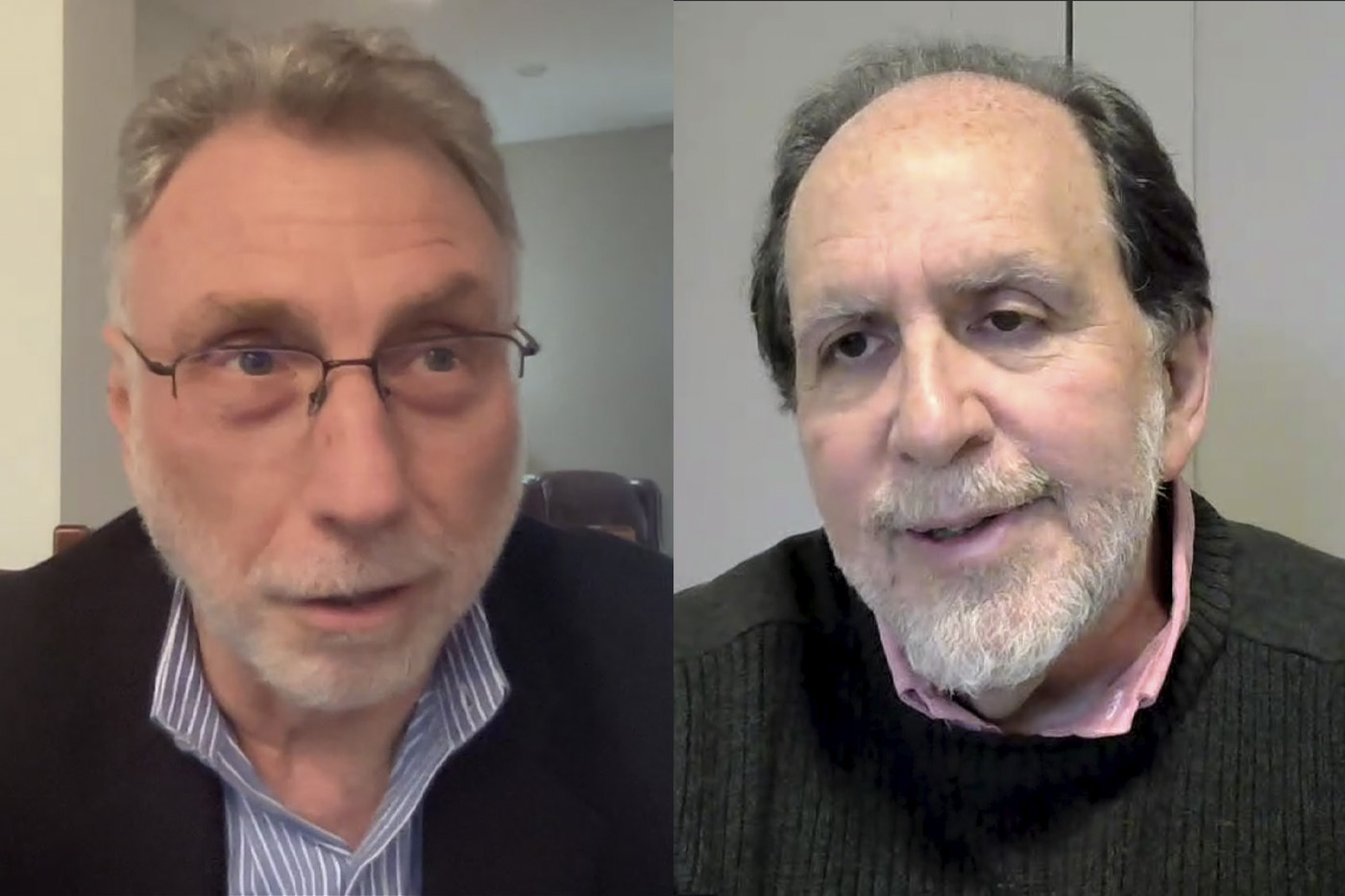Former Washington Post editor Baron assesses Trump’s impact, hints at role as journalism advocate

Former Washington Post editor Marty Baron said the ailing journalism industry must work to regain the public’s trust, find ways to pump up profits, and expand diversity in both newsrooms and coverage in order to save the profession.
In a rare nod to his post-retirement plans, Baron said he would like to speak out about the significance of news and explain to the public why it remains important.
“I think that our profession has been miserable at how we’ve communicated with the public about our role,” Baron said during the hour-long virtual event Thursday night hosted by Jonathan Kaufman, director of Northeastern’s school of journalism and sponsored by the Boston Globe.
“I hope to find a way to be a voice for journalism, to communicate with the public about the role of journalism in our society and democracy,” Baron said when asked about his plans for the future.
“I would like to do something or any number of things over the coming years to try to be an advocate for the work that we do. I think we play an important role in democracy, I know we do. I would like to be a voice for journalism and how we can improve journalism over time.”

Screenshot by Northeastern University
The veteran newspaper editor, who also headed the Miami Herald and Boston Globe, retired last month after a 45-year career in journalism. Baron-led newsrooms won 17 Pulitzer prizes, 10 of which came during his eight years as editor at the Post.
Baron, who said he spoke to former President Donald Trump only a few times over the last four years, said Trump cranked up the heat on an already simmering distrust of the media, and served as a wake-up call for journalists.
“I don’t think we’d ever experienced a president who in an unrelenting way, had been attacking the press, attacking our role in society, calling us the kinds of names that he called us and actually suggesting that we were traitors to the country,” Baron said.
“A large segment of the population was completely dismissive of what we wrote because the president told them to be dismissive. He told them that we were fake news. And as a result we didn’t have a shared set of facts on this country, and I think that that woke us up. The idea that, you know, we could do a lot of work, we could gather the facts, we could gather the evidence, and yet there would be a large segment of the population that would simply dismiss it, ignore it, or repudiate it simply because it came from us,” he said .
Baron pushed back on questions about increasing diversity in both the newsroom and in news coverage during his tenure at the Post, although he agreed that journalism must do better.
“I mean there was a racial reckoning in our newsroom, I understand it, I understand why it was,” Baron said. “Should we have done more? Should we have done it more quickly? Yes, of course, but I don’t think it was for lack of trying. I think we worked very hard at it.”
Baron sidestepped questions about two recent conflicts with reporters at the Post about their use of social media, although he did defend his overall stance that reporters must be careful about sharing their opinions.
“They’re using the Washington Post as a platform to express themselves individually. And so my view is that they are seen as representatives of the Post, and they are representatives of the Post, and that they should act accordingly,” he said.
Reporter Wesley Lowery left the Post last year after Baron warned him that his tweets about race and other subjects violated the paper’s social-media policy. More recently, reporter Felicia Sonmez was suspended, then reinstated after she referenced sexual-assault charges against Kobe Bryant shortly after his death.
When asked about Amazon chief executive Jeff Bezos’s ownership of the Post, which Bezos purchased in 2013, Baron said he’s grateful the billionaire gave the paper an opportunity to find a sustainable national business model, adding that the Post has been profitable for several years. But he said news organizations will have to charge readers if they want to save the profession.
“I don’t know exactly what the answer is, but I do firmly believe that news organizations have to charge. They have to basically demand that people pay if they want to get access to that journalism,” Baron said. But, he noted, “if we’re going to ask people to pay, then we need to give them something worth paying for.”
For media inquiries, please contact media@northeastern.edu.





